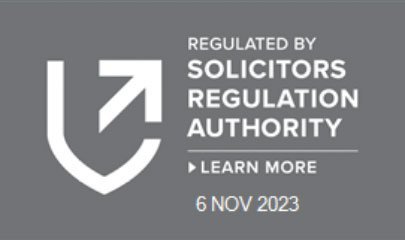Are Gender Recognition Laws being reviewed in England and Wales?
Following an independent consultation, the UK Government announced in 2020 that it did not intend to amend the criteria for applying for a Gender Recognition Certificate in England and Wales; but the application process would be changed to be “kinder and more straightforward”.
In response to an online petition, The House of Commons debated the need for further reforms on 21 February 2022. During this debate The Minister of Equalities confirmed that it remains the Government’s view “that the balance struck in the legislation is correct: the system provides proper checks and balances, while supporting people who want to change their legal sex.” However, further recommendations relating to the process and medical assistance are expected.
Further information about the status of consultations in England and Wales can be accessed via the House of Commons Library.
What is a Gender Recognition Certificate?
A Gender Recognition Certificate (GRC) allows people to be legally identified as the gender they identify with and update their birth certificate to reflect a change to either “male” or “female”. In England and Wales, it has been possible to obtain a GRC since the creation of the Gender Recognition Act of 2004.
How do I Obtain a Gender Recognition Certificate?
To obtain a GRC in England and Wales, you must be 18 years or over and meet the criteria of the Gender Recognition Panel, which includes living as the gender you identify with for a significant period and the intention to live exclusively as that gender for the rest of your life.
There are three recognised routes to apply for a GRC with differing requirements depending on your situation as a transgender person:
- Standard: The standard requirements include proof of a two-year minimum period living as that gender, as well as two medical reports indicating that you have gender dysphoria, also known as gender incongruence and transsexualism.
- Alternative: The alternative route is applicable to those who have been living in their new gender for over six years and are married or in a protected civil partnership.
- Overseas: The overseas route is for individuals who have had their gender recognised in a country outside of the UK and want the same recognition within this nation.
The GRC application process is to be moved online and the fee reduced from £140 to £5. You can learn more here: www.gov.uk/apply-gender-recognition-certificate
Can I Change my Gender if I am Married?
If you are married you will need the consent of your spouse to legally change your gender, regardless of whether you are in a mixed or same-sex marriage. If your spouse agrees and you both wish to stay married, you would be required to sign a statutory declaration to show that you still recognise your union.
If your spouse does not consent and / or does not wish to remain in the marriage, you will need to end your relationship before you can be given a GRC. You can do this by applying for an annulment or a divorce. Annulment differs to divorce because the union is deemed invalid and is voided, rather than coming to an end. You can learn more about how to annul a marriage here: www.gov.uk/how-to-annul-marriage.
For an annulment to be obtained in these circumstances, you will need to show that one spouse has gender dysphoria and intends to live as a different gender to when they entered the marriage.
Some people who do not have the support of their spouse prefer to divorce before beginning their transition.
Do I need my Partner’s Consent to Transition in a Civil Partnership?
The same rules apply for couples in civil partnerships as for marriage (see above). If your partner does not consent to changing your gender, you will need to apply for an annulment or dissolution before you can obtain a GRC.
What if my Spouse or Partner Withdraws Consent Mid-Transition?
If you are already in the process of transitioning, you can apply for an interim GRC whilst the marriage / partnership ends. Once the relationship has legally ended you can receive an official GRC. An interim GRC can be used to achieve an annulment rather than divorce, however, we would have to look at each case specifically.
What are the Legal Considerations in Divorce and Annulment?
Whether your relationship is ended or voided, you will need to legally separate your finances.
There is a common misconception that financial settlements are not required where there is an annulment, but you will still need to agree how to divide joint assets. It is advisable to seek advice from a solicitor, especially if your assets are completely mingled or one spouse has been the breadwinner and the other has limited earnings capacity.
When you divorce the starting point is to split the marital pot 50/50, although you can agree to vary that distribution so long as, where possible, both people leave the relationship in a position to meet their needs.
Will my Legal Rights Towards my Children Change if I Change my Gender Identity?
Transitioning does not affect your status, nor your rights and responsibilities, as your child’s mother or father. Although you may change your name and how you reference your relationship, it is not currently possible to change your child’s birth certificate to reflect your new gender identify.
If you are separating, you will need to agree ongoing care arrangements for your child and make financial provisions. How parents behave during a divorce or separation will have an impact on the happiness, health and wellbeing of their children. We recommend that all separating parents read our five practical steps to ensure your child’s needs come first: www.allardbailey.com/child-focussed-separation/
It is important to recognise that both the transition and separation trigger periods of change for the child and all children will be affected differently, so they may require some distinct support. FamilyEquality.org has compiled resources for transgender parents and their children that can be accessed here: www.familyequality.org/resources/resources-for-people-with-a-transgender-parent
Legal Advice
If you find yourself in need of assistance to divorce or annul your relationship, agree your financial separation or make arrangements for children that put their needs first, please get in touch. Our specialist knowledge and proven results with complex family dynamics can help you to navigate through this time of change.
If you would like to speak confidentially to one of our family solicitors you can call 020 7993 2936 to schedule an appointment or make a Contact Request here.































































